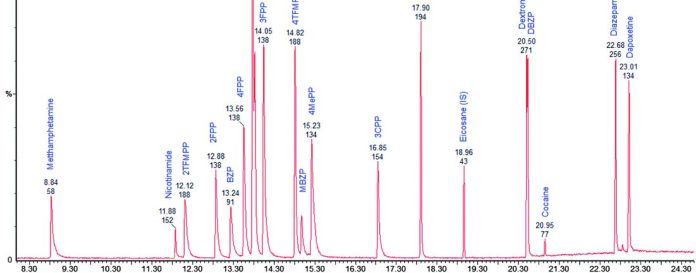
CALGARY, Alberta – A recent study published by the International Association of Oil and Gas Employee Behavioural Mechanics has found that a large percentage of oil and gas head office employees routinely use recreational drugs in an effort to help get their work done and to allow them to cope with the everyday stresses commonplace in the fast-paced industry.
According to the study, that was published in the Journal of Office Productivity, 91.3% of downtown Calgary workers routinely use recreational drugs, 83.4% in Houston, TX, and a few tenths short of 100% in Denver, CO.
We actually found the results of this study to be very alarming, yet not very surprising. We have known for decades how prevalent recreational drug use is with field staff, but the head office? It was pure speculation – until now. – Dr. Dean Starks, lead scientist for the study
The study’s research was broken down and summarized by job type, and covered a wide variety of drugs commonly used throughout the oil and gas head-office workplace, from marijuana to methamphetamine.

Middle Managers:
Drug of Choice: Psilocybin Mushrooms (Magic Mushrooms), Lysergic acid diethylamide (LSD), and other drugs in the psychoactive family.
Rationale: The psychoactive tryptamines in these substances enable middle managers to visualize spreadsheets, budgets, and forecasts in such a way that they actually make sense. One manager reported that the numbers all meld together and start arguing, as they jump off the page, but when they settle down and get tucked neatly in their cozy little bed cells, it all magically comes together.

Engineers (all disciplines):
Drug of Choice: Methamphetamine, C10H15N (Speed)
Rationale: This potent and addictive central nervous system stimulant (key word stimulant) enables engineers to think that they can get more work done in less time, which is true to their very nature.
By stimulating the mesolimbic reward pathway, speed causes euphoria and excitement and users may become obsessed or perform repetitive tasks such as working up complex spreadsheets, performing decline analysis, assembling and disassembling objects, and making fun of intellectually challenged individuals.

Geologists:
Drug of Choice: Marijuana, hash, oil, or any other substance containing the active chemical tetrahydrocannabinol (THC).
Rationale: The THC in this family of drugs can cause distorted perceptions, impaired coordination and problems with learning and memory, so it would appear that most geologists started consuming this drug just before deciding to study geology, throughout their university years, and into professional life.
And unlike the some of the other drugs considered in this study, THC occurs naturally, which really hits home with most geologists. Many of them believe that smoking a doob is getting down with glorious Mother Earth. One of the study’s participants noted how he built an earth bong out of his backyard – literally.
Human Resources:
Drug of Choice: Methylenedioxymethamphetamine (MDMA, or ecstasy).
Rationale: The primary effects of MDMA include an increased awareness of the senses, feelings of openness, euphoria, empathy, love,happiness, heightened self-awareness, feeling of mental clarity and an increased appreciation of music and movement.
Without using ecstasy daily, many HR staff admitted that they would not be able to get through their everyday tasks. Some remarked that without their happy place drug, they would pretty much deteriorate to an engineer (personality-wise, of course, not intellectually).
Accountants:
Drug of Choice: Everything, and we mean everything. Depressants, psychedelics, stimulants, deliriants, dissassociatives, bath salts, laundry detergent, and categories of drugs that have yet to be formally classified.
Rationale: A secondary finding in this study was that very few people like accountants – including accountants themselves. So accountants typically experiment with every kind of drug imaginable, by mixing them, consuming in large doses, small doses, and while in various physical positions, all in an effort to cope with being accountants and to prepare them to tackle the numbers.

The study’s results were staunchly refuted by the Canadian Oil and Gas Producers Association, whose spokesman stated that,
The study is garbage – I’m not buying it for a second. I asked for a transcript of the study and I have yet to hear back from them. Who were the participants in the study? There’s no backing to this. I firmly believe that our head-office workers in Alberta seldom use recreational drugs. That’s my story, and I’m sticking to it… Now where did I put those dang gummie bears? – Mike Stonewilder, COGPA spokesman.

















